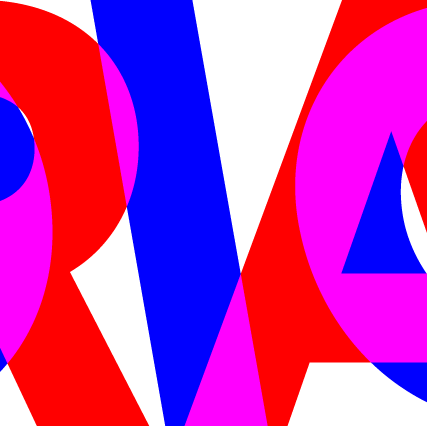Events
-
 Toolbox #5
Toolbox #5
-
 Toolbox #6
Toolbox #6Toolbox in the winter term 2025/26
-
 Toolbox #7
Toolbox #7Toolbox in the winter term 2025/26
-
 Grau, kalt und rechts? Wie reden wir über „Ostdeutschland“?
Grau, kalt und rechts? Wie reden wir über „Ostdeutschland“?What is “East Germany”? We want to talk about a region often perceived as gray, cold, and politically right-leaning. We aim to discuss how East German lifeworlds are constructed in media representations, political debates, and cultural and literary narratives, navigating between self-description and external attribution, between memory and the present.
-
 Toolbox #8
Toolbox #8Toolbox in the winter term 2025/26
-
 Contradictions Festival – 10 years WOC
Contradictions Festival – 10 years WOCIn fall 2025, Worlds of Contradiction (WOC) will be 10 years old. An overview of the planned program is available on the WOC website.
-
 Early Career Vernetzungsworkshop
Early Career VernetzungsworkshopEarly Career Networking Workshop as part of the 10th anniversary of the WOC Contradictions Festival with members of the WOC Graduate Network (WOC GradNet), the DFG Research Training Group 2686 Contradiction Studies, the Bremen International Graduate School of Social Sciences (BIGSSS), the Institute for Social Research (IfS) and the GRK 2638 Normativity, Critique, Change
-
 Toolbox #9
Toolbox #9Toolbox in the winter term 2025/26
-
 Workshop: Research Data Management
Workshop: Research Data ManagementFurther information will follow shortly.
-
 Toolbox #10
Toolbox #10Toolbox in the winter term 2025/26
-
 Toolbox #11
Toolbox #11Toolbox in the winter term 2025/26
-
 Toolbox #12
Toolbox #12Toolbox in the winter term 2025/26
-
 Toolbox #13
Toolbox #13Toolbox in the winter term 2025/26
-
 Workspace/Kolloquium Contradiction Studies #1
Workspace/Kolloquium Contradiction Studies #1Workspace/Kolloquium #1 in the winter term 2025/26
-
 Workspace/Kolloquium #2
Workspace/Kolloquium #2Workspace/Kolloquium #2 in the winter term 2025/26
-
 Workspace/Kolloquium #3
Workspace/Kolloquium #3Workspace/Kolloquium #3 in the winter term 2025/26
-
 Workspace/Kolloquium #4
Workspace/Kolloquium #4Workspace/Kolloquium #4 in the winter term 2025/26
Past Events
-
 Ostwärts in den Westen. Die Flucht von DDR-Bürger:innen über die bundesdeutsche Botschaft in der ČSSR im September 1989
Ostwärts in den Westen. Die Flucht von DDR-Bürger:innen über die bundesdeutsche Botschaft in der ČSSR im September 1989In the summer and fall of 1989, thousands of citizens left the GDR in an attempt to emigrate to West Germany via the West German representations in Budapest, Prague and Warsaw. The dissatisfaction of the people in the GDR was great at the time and led to an unprecedented wave of refugees. The escape story of these people is part of the “East German Autumn” of 1989, which led to the opening of the Berlin Wall and the German-German border.
This exhibition is dedicated to a group of 13 people whose escape led them to Palais Lobkowitz, the seat of the Embassy of the Federal Republic of Germany in Prague, and tells their story.
These contemporary witnesses – photographed by Manja Herrmann – look back from today on the conditions in the GDR, their escape route and their stay in the West German embassy and reflect on the influences of their escape story on their current life situation. The result is an exhibition that looks back from the present to the events of summer and fall 1989 and recalls a decisive chapter not only in German-German but also in European history.
-
 Faculty Retreat
Faculty Retreat
-
 Workshop Science-Slam
Workshop Science-SlamOn January 8 and 9, a workshop on the topic of science slams will take place with the participation of the WoC GradNet, the GRK Contradiction Studies and MAPEX. Participants will learn how to present their own research topic on stage in an exciting talk and make it accessible to a lay audience in an understandable way. The workshop will be led by Dr. Julia Offe and Andreas Laurenz Meier from scienceslam.de.
-
 Widersprechen gegen das Vergessen. Tschechoslowakische Zwangsarbeiter*innen in der Region Bremen
Widersprechen gegen das Vergessen. Tschechoslowakische Zwangsarbeiter*innen in der Region BremenForced laborers from the occupied territories of what was then Czechoslovakia (“Protectorate of Bohemia and Moravia”) are among the most invisible victims of National Socialist crimes in and around Bremen.
It is very difficult to find traces of this group of prisoners, but we still want to bring the Czech forced laborers more into the focus of public perception in Bremen and counteract oblivion. To this end, activists from various institutions and initiatives will come together at a public event for a workshop discussion to discuss the current state of knowledge and to try to find possible approaches to continue working together on this issue.
Following the discussion, we would like to invite you to a concert with the Czech band Monika Načeva and Zdivočelí koně in memory of the Czech and Slovak victims of National Socialist crimes in Bremen and the surrounding area.
-
 Kolloquium Contradiction Studies
Kolloquium Contradiction Studies
-
 Für Widerspruch sorgen. Impulse and Talk
Für Widerspruch sorgen. Impulse and TalkIt is almost a commonplace that we live in contradictory times. But what does it mean to take social contradictions seriously? Which contradictions must be endured – and which not – in a democracy? Is every form of contradiction already emancipatory, and if not, where do we draw the line? How does contradiction become a collective, democratic practice that is not limited to a “yes, but…”?
Carolin Zieringer investigates these and similar questions from a radical-democratic and queer-feminist perspective. Taking Jala Wahid’s play with ambiguities and emotions as a starting point, Carolin Zieringer sets out to discuss how we can remain open to contradictions and uncertainties in a world permeated by exclusion and violence, what role care plays in this, and when it is structurally impossible to care.
-
 Black Atlantic Affordances. Contested Memory Cultures
Black Atlantic Affordances. Contested Memory CulturesDr. Deborah Nyangulu and Dr. Jana Weiss convened the ‘Black Atlantic Affordances. Contested Memory Cultures` conference at the University of Texas at Austin from Feb 23 – 25. The event featured a range of speakers who engaged with, among others, questions of Black freedom, memory cultures, , the Black radical tradition, African diaspora, and digital humanities. Prof. Dr. Ashley D. Farmer (UT Austin) and independent researcher, writer, and political analyst Nanjala Nyabola gave the keynote addresses. The conference also featured a roundtable on the topic of ‘Black Atlantic Affordance and Digital Humanities’ with speakers Kelly Baker Josephs, Justin Dunnavant, Amani Morrison, and moderated by Deborah Nyangulu.
-
 Workshop with John Holloway
Workshop with John HollowayThe workshop is open to BA, MA, and PhD Candidates. We have currently reserved 5 places for members of the Training Group. Please, register with me in advance, if you are interested.
-
 Bänkelsang to a binaural beat – The issue, the method of delivery, agnotology and the contradiction of selling ‘rodenticide’
Bänkelsang to a binaural beat – The issue, the method of delivery, agnotology and the contradiction of selling ‘rodenticide’We (Laura Ziegler & Dean E. Stephanus) invite you to think with us as we invoke the legacy of the bench singers “Bänkelsang” that were active in the region that would become Germany from at least the 17th century until the practice was banned by the Nazi’s. Acting as proto journalists, researchers and performers, the bench singers gathered news stories and histories that alerted people to what was going on, information that would have been otherwise concealed, censored and often inaccessible by the subordinate masses (class, race, gender) due to illiteracy.
We use the motif of the bench singers to revisit an old question in the humanities and political organising, how to methodologically find ways to make accessible, communicate, and share information with the mass public(s). And importantly we wrestle with the contradiction of that aim. We refer to this as our rat poison, a reference to times when bench singers of old sold rodenticide to make money for their itinerant performances. We would like to engage the ways in which real-life maintenance of the body contradicts the aims set out to liberate the body.
The talk will include links to current questions we debate as cultural workers and humans. Through the use of zine making we tease out certain topics, one example of a zine that will be presented in the talk is through the medium of biography we discuss the life of Mabel Grammer, a black journalist who played an important and little-known role in the “Brown Baby Plan” of post-war Germany. This was a private adoption agency that arranged the adoption of over 500 Afro-German children to African-American couples, particularly in the 1950s. And then link it to a so-called ‘brown baby’ who lived a life in Germany deeply affected by race, Robert Pilatus. Pilatus was a member of the once popular Afro/Pop duo known as Milli Vanilli.
Our approach is usually dialogical. We speak in a down-to-earth manner and encourage all participants to feel free, to question or challenge us, to add or think with us throughout the talk.
-
 General Assembly
General Assembly